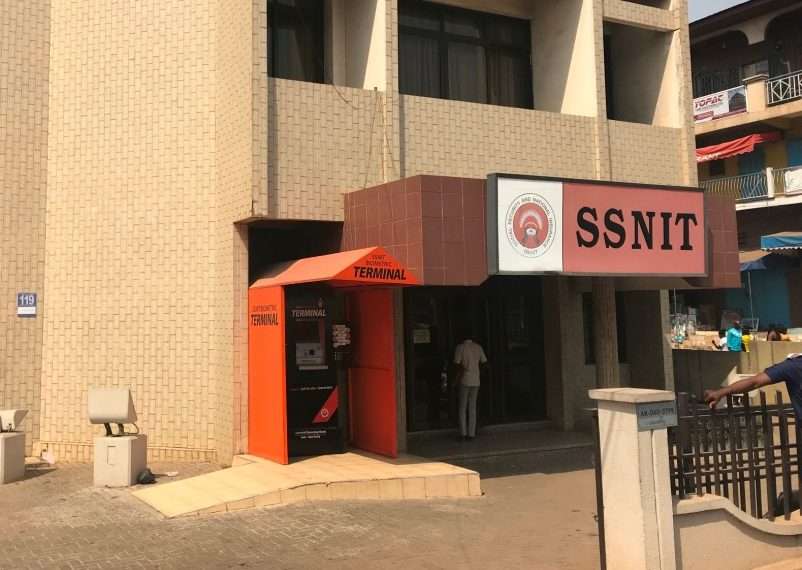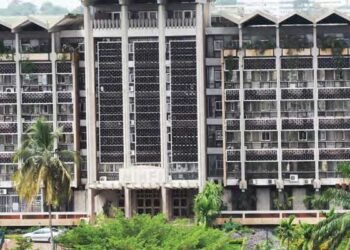The Social Security and National Insurance Trust (SSNIT), in a statement responding to Bright Simons’ tweet on the SSNIT 2018 Annual Report, has stated that the current management is not to blame over the US$300 million corporate loans issued of which US$254 million defaulted.
The statement further noted that the current management was appointed in March 2017 while loan was given from September 2011 to May 2013. However, the trust noted it was not accurate for Mr Simons to say, “of the US$300 million issued as corporate loans, US$254 million has gone bad.”
The Trust explained that the IFRS 9 required the provision of impairment losses even before the credit was granted, hence the term Expected Credit Losses (ECL).
“These provisions for impairment do not necessarily mean the loans have gone bad or are not recoverable.”
SSNIT
The statement further said, even though the provision for impairment or ECL could be misconstrued to represent actual losses, it was required to ensure the Trust acts speedily to recover all loans.
This, the statement said, was echoed by the Auditor-General on page 44 of the 2018 SSNIT Annual Report which was the subject of discussion, where the Trust adopted the IFRS 9 for accounting periods beginning on or after January 1, 2018.
Moreover, the Trust stated that this was a new and complex accounting standard that required considerable judgement and interpretation in its implementation.
“We consider this transition and the required disclosure to be a key audit matter because new models have been developed by the Trust with its external consultant to calculate IFRS 9 impairment losses and judgement is required in many significant areas, in particular around the calculation of Expected Credit Losses.”
SSNIT
That notwithstanding, the statement said the current Management of the Trust has taken steps to restructure non-performing loans and made some significant recoveries post the 2018 accounting year. This, it said include payments totalling GH¢200,000,000.00 over the period of December 11, 2018 – November 14, 2020, by Cenit Investment Limited through five semi-annual tranches of GH¢40,000,000.00 that have been made.
However, the statement further said the loan has been restructured, allowing the company to transfer its ESLA Bond holding with a settlement value of GH¢508,862,465.61 to SSNIT on November 19, 2020, to extinguish part of the debt.
In addition, the statement noted that a revised repayment plan was being finalized for the servicing of the restructured loan. This loan was given from September 2011 to May 2013 and a payment of GH¢20 million by GETFund in July 2021 after Management had resolved the disagreement with the GETFund.
Also, it said US$1,301,000 plus interest has been recovered from FOS Aluminium Company Limited, therefore, the company was no longer indebted to SSNIT, meanwhile, the loan was granted in December 2002 and July 2003.
In addition, the statement averred that, the current management of the Trust has developed new investment guidelines since 2017 to help ensure that funds were put into viable investments and reduce provisions for impairment among others.
However, management assured workers that their funds are safe and will ensure prudent investments to generate enough revenue to continue paying monthly pensions.
It can be recalled that Mr Bright Simons in a tweet, stated that,
“Ghana’s largest pension fund, the State-owned SSNIT, per its latest published annual report, has issued corporate loans totalling $300m, of which an amazing $254m have so far gone bad.
“For those asking whether anything has changed since 2018, the answer is yes. 97.4% of the loan book has gone bad as of 2020 financial year ($299m/$300m). For those who prefer IFRS 9 jargon, 97.4% of loans are ‘stage 3 inpaired’ per the Auditor. Presumably, that sounds better.”
Bright Simons
READ ALSO: SSNIT to Delete 13,000 Names from Pensioners Payroll



















